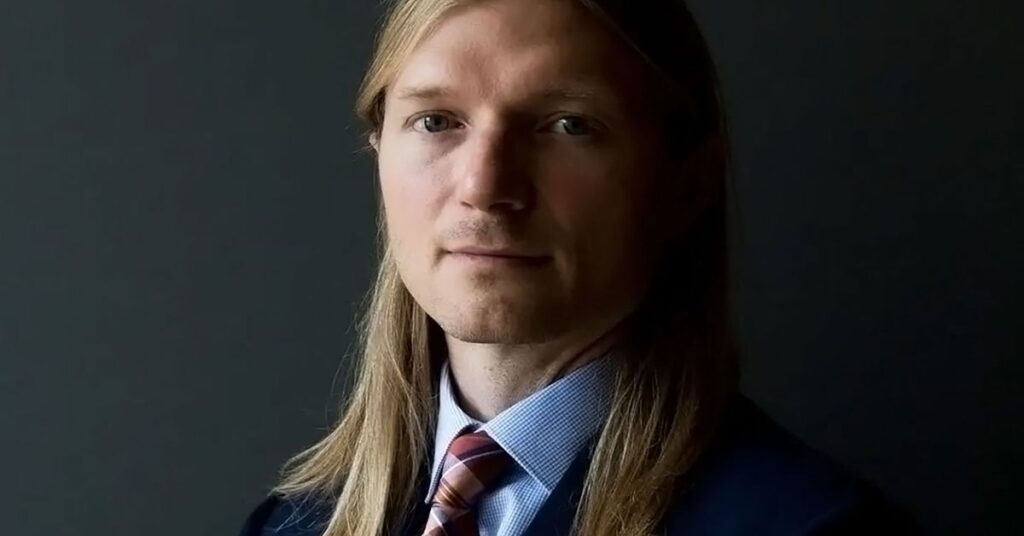 (NYTIMES) – Cory Klippsten started issuing warnings about the cryptocurrency market in March.
(NYTIMES) – Cory Klippsten started issuing warnings about the cryptocurrency market in March.
The digital coin Luna, Mr Klippsten tweeted, was a scam, run by an entrepreneur with “major Elizabeth Holmes vibes”.The newfangled crypto bank Celsius Network was a “massive blow-up risk”, he said.
When those crypto projects collapsed a few weeks later, causing a crash that has wiped out about US$1 trillion (S$1.38 trillion) in value, Mr Klippsten became a fixture on news shows, where he cast the industry as a morass of hucksters and hypocrites.
“Crypto is a scam,” he declared last month.
But Mr Klippsten differs from most crypto haters in one crucial respect – he runs a Bitcoin company.
In the crypto world, Mr Klippsten is known as a Bitcoin maximalist, or “maxi” – a hardcore evangelist who believes Bitcoin will transform the financial system even as fraud pervades the rest of the crypto ecosystem.The maxis are just a subset of the crypto industry, but their ranks include influential figures like Mr Jack Dorsey, a founder of Twitter and an early Bitcoin proponent.
The maxis continued buying Bitcoin even after its price plummeted to an 18-month low of about US$20,000 in June.And, as the market has melted, they have embarked on a public relations offensive, aiming to persuade investors and lawmakers that Bitcoin is different from the thousands of other digital currencies that proliferated in the last few years before tanking this spring.
“The only future for non-Bitcoin crypto is to seek to be co-opted by banks and governments and become part of the existing system,” Mr Klippsten, 44, said.
The debate being fuelled by the maxis has become a battle for crypto’s future.
The maxis say they are trying to steer crypto back to some of its original ideals at a pivotal moment, as new regulatory scrutiny and mounting consumer distrust pose an existential threat to the industry.
They also see an opportunity to profit from the downturn.As Celsius imploded in June, Mr Klippsten trumpeted a promotion giving its former customers a membership to his financial services firm, Swan Bitcoin, which provides financial planning for Bitcoin investors.
Bitcoin advocates have been courting new adopters ever since the digital currency was invented, in 2008, by a mysterious figure known only by the pseudonym Satoshi Nakamoto.At the time, Bitcoin backers were disillusioned with the mainstream finance system and wanted to create a form of virtual money that could be exchanged without a bank or another intermediary.
With a supply limit built into its underlying code, Bitcoin was supposed to offer a hedge against inflation, since no centralised authority would be able to print more of it.
Many subsequent cryptocurrencies have lacked those features.Often, new coins are issued by a group of founders who exert significant control over distribution – a dynamic that can replicate the centralised structure of traditional finance.
“Bitcoin is decentralised, digitally scarce money.
Everything else is centralised,” said Mr Jimmy Song, a crypto podcaster and an outspoken Bitcoin maxi.”There’s a world of difference between a censorship-resistant, self-sovereign money versus a gambling vehicle.”
Bitcoin’s price swings wildly, and its investors often treat it as a kind of risky stock, no different from the shares of companies traded on the tech-heavy Nasdaq index.
Hardly anyone uses Bitcoin to conduct ordinary transactions.Last year, El Salvador introduced Bitcoin as its national currency, but that project has been a stunning failure.Verifying Bitcoin transactions – a process known as “mining” because it rewards participants with digital coins – is energy-intensive.
Researchers estimate that Bitcoin mining may produce as much as 65 megatons of carbon dioxide per year, comparable to the annual emissions of Greece.
“You can’t use it to buy anything – it’s way too volatile and complex and laden with fees,” Mr John Reed Stark, a former Securities and Exchange Commission official, said of Bitcoin.”There’s no intrinsic value.”
Now, Bitcoin supporters are building their own political apparatus.
This year, Mr David Zell, a Bitcoin advocate, started the Bitcoin Policy Institute, a think-tank that pushes a pro-Bitcoin agenda in Washington.The institute has argued that concerns over Bitcoin’s energy consumption are overblown.
A former consultant at McKinsey, Mr Klippsten became interested in crypto in 2017, when a wave of new currencies were created and prices surged.
Mr Klippsten also came to believe that many newer currencies were unregistered securities, more akin to the stocks people trade than to the money used in those transactions (regulators have declared Bitcoin a commodity rather than a security).
Mr Klippsten automatically invests a portion of his own savings in Bitcoin every day, a process known as dollar cost averaging.
He has continued to buy at the same rate throughout the downturn.
But if he received a windfall, Mr Klippsten said, he would “argue very vociferously with my wife to try to put the majority of it into Bitcoin”.
Join ST’s Telegram channel and get the latest breaking news delivered to you..
